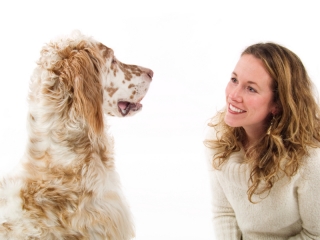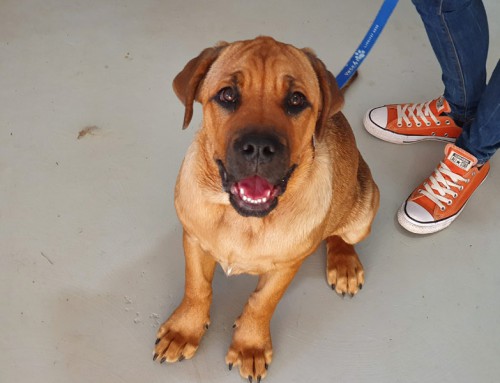Many of us with busy lifestyles can find it difficult to go the hard yards to get their pets under control. Sadly this can often result in a pet being “banished” and becoming unhappy and destructive as it lacks the encouragement and companionship that it so needs. The next step can then be a visit to the shelter …..
As is often said by trainers who are “called in” to help with unruly dogs, it’s often the pet parents that need training, rather than the pet!
Here are some ways to help you and your pet on the right paw …..
1.Consistency
Dogs can be like children. They need consistent guidelines and instructions. Remember things are black and white in dog world.,so anything that is not clear or is inconsistent may be totally ignored. They are not being “naughty” or “stupid” – they just don’t get it!
For example, if one person in the household allows the dog on the couch and the other doesn’t, that can be confusing. It’s not fair ot the dog to have different rules at different times, and it just sets them up for failure if the messages are not consistent.
2.Timing is everything
Dogs live in the moment, it’s important to act immediately to encourage or discourage particular behaviour.
When your dog does something good, you must dish out the praise without delay. On the other hand, if your dog has done something you are not happy with, you can only correct him if you catch him in hte act – if you try to correct him after time has passed he just wont know what you are on about, and you are wasting your time.
If you come home and the dog has been in the rubbish, whilst you may want to admonish him, he will think it’s because he was doing whatever he was doing when you corrected him – even it is was sleeping in his bed. I know people think that their pet’s look “guilty” but in reality there is no such thing, as they live in the present. (Have you ever noticed that even if you go out for 5 minutes you’ll get the same welcome as if you had been out for 5 hours – they just don’t remember!)
3.Try not to repeat commands
Commands are to be obeyed – they are for safety as much as anything else. So don’t repeat commands, just say it like you mean it first time around, and help them understand what you mean. So if you say SIT, say it like you mean it, and push his rump down, to give him the idea. Try not to over-repeat the command.
4.Take it easy
Give your pet loads of time to “practice” and demonstrate that he fully understands the commands you are teaching him, before moving on to training another behaviour.
Don’t assume your dog understands something too quickly. Set your pooch up for success and if they fail too often on the next step, go back to square one. So you have every opportunity to praise your pet and help them gain confidence.
5.Dogs are dogs
As tempting as it is, we should avoid treating our doggies like humans. They are different to us, and it’s important they understand who is the boss.
While dogs definitely experience some emotions, their range is narrower than that of humans. Dogs definitely do not feel guilt, for example. If you think your dog looks guilty, he is simply reacting to your body language. He may not know why you’re unhappy, and his look is a reaction to your attitude at the time.
Aas cute as it may seem, your dog is not a baby! Let your dog be a dog and enjoy the things that dogs do! As with children, set the boundaries.
6.Make a plan
Before you start training your dog, make sure you read up and do the research first and prepare well. Be committed, and be prepared to be in there for the long haul. Training early is by far the best thing to do – it takes much longer to correct behaviour than starting off on the right paw.
Of course there are many puppy schools around, and dog training options which are an excellent way to start off.
What is the most important pet training tip?“The most important part of training your pet is to respond to their actions immediately after they occur. If they soil the rug, they must be made aware immediately. If it’s after the event they are likely to think you are unhappy for some other reason. If they fetch the ball, praise them straight away. This is because if there is a delay between the action and the response, your pet may not associate the response with what they have done and so will not learn anything from the experience.” |
Of course if you are having issues that you simply cannot manage, then it’s wise to enlist a professional, or seek out information on line from reputable trainers.
If you’ve recently brought a dog into your home, learn more about your pet insurance options here.







Leave A Comment